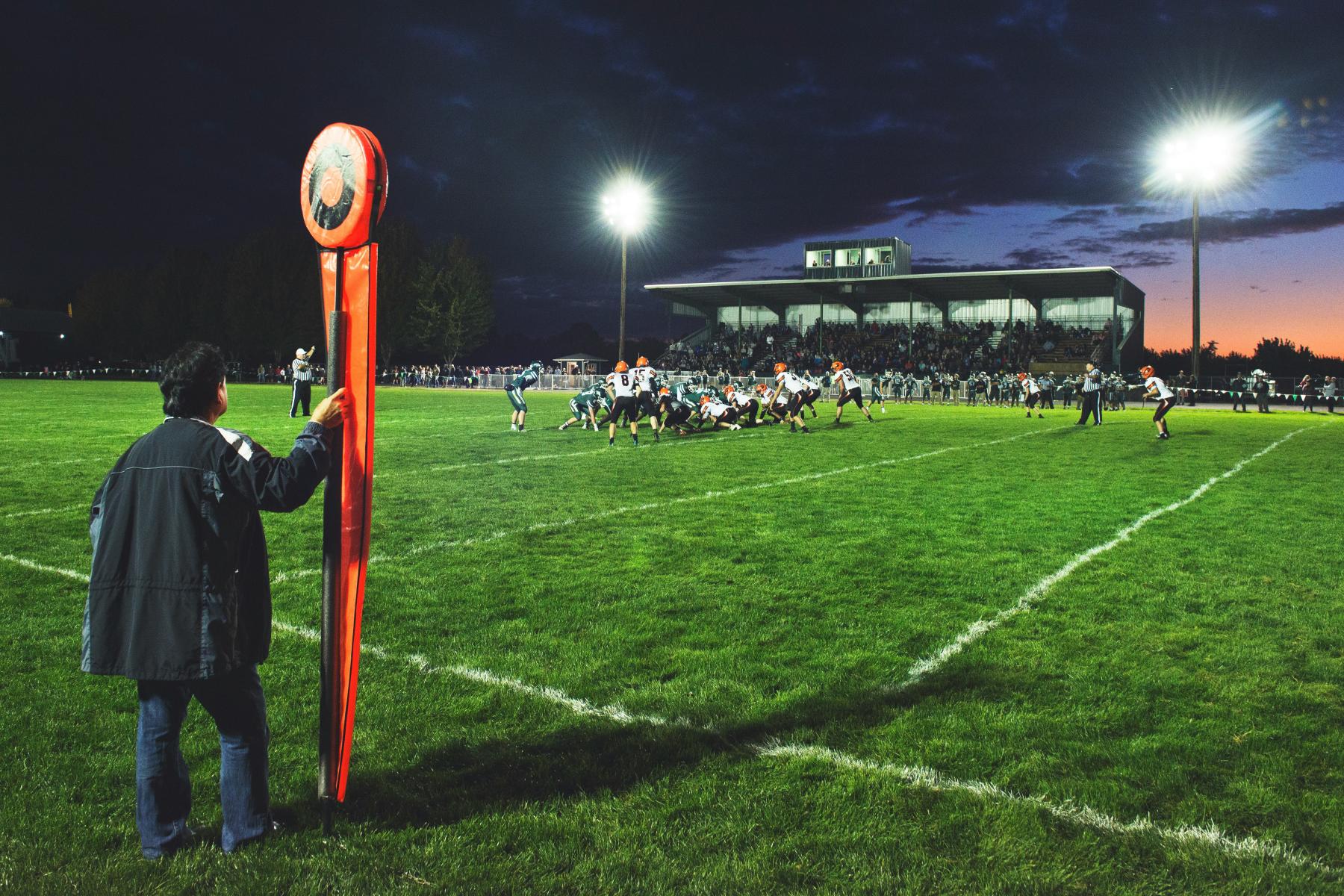Home / Rules / Traits
Table of Contents:
Attributes
Attributes are divided into three categories: Mental, Physical, and Social. Each category is then subdivided into three attributes: Power, Finesse, and Resistance.
Mental Attributes
Intelligence (Power)
The raw power of the mind. Cognitive capacity. The inherent capability to digest, comprehend, and remember information — and to learn more. Intelligence is a direct measure of how smart your character is. She may be dull-minded or have narrow-vision. She may be book-smart, or she may simply be able to grasp concepts, interpret situations and solve problems quickly.
Memorization
At ST discretion, an Intelligence + Composure draw may be made to see if a character is capable of committing something specific to memory or recalling precise information at a future date, such as a name or facial feature, license plate number, etc.

Wits (Finesse)
The ability to think on one’s feet, under pressure or duress, without letting them see you sweat. Wits also encompasses an eye for detail, the ability to absorb what’s going on in the environment, and to react to events. It might mean recognizing that the temperature in a room slowly drops, that a landscape painting incorporates a disguised human face, or that a trap is about to be sprung.
Perception
Wits + Composure (At ST discretion, a more relevant skill can replace Composure)
If a character is actively looking for something in a situation, this test may be made to see if the detail or object is found. In addition, an ST may call for this draw if there is something hidden in the scene which players might potentially find.
Reacting to Surprises
Wits + Composure (At ST discretion, there may be additional external penalties applied to this draw)
A success indicates that the surprised characters may act as normal in combat, while a Failure means that the surprised characters may not act in the first round of combat.
Resolve (Resistance)
The focus and determination to see your character’s will done. The capacity to stay on target, ignore distractions and to resist coercion or browbeating. Resolve is your character’s mental fortitude. Their personal conviction. Their clarity of vision or spirit. Your character may be easily distracted, unable to concentrate, resolute, or single-minded. Resolve is used to resist many forms of supernatural compulsion.
Resisting Coercion
Resolve + Composure or Resolve + Stamina
This is typically to resist someone else’s Wits-, Intelligence-, Presence-, or Manipulation-based challenge. At ST discretion, players may receive a bonus or penalty to this test based on roleplaying and the circumstances of the scene.
Physical Attributes
Strength (Power)
Physical might. Sheer bodily power. The capacity to lift objects, move items, hit things and people, and do damage. Strength is a measure of muscle. Your character could be a 98-pound weakling; they could carry a spare tire; they could be lean and cut or bulky and brawny. Strength is used in hand-to-hand combat.

Dexterity (Finesse)
Quickness. Response time. A delicate touch. Dexterity indicates how quickly and with how much finesse your character responds to his physical world. While high Wits helps your character spot trouble, high Dexterity helps him react to it. Dexterity also helps with hand-eye coordination, be it to fire an accurate shot, to juggle objects, or to perform delicate jobs such as handle explosives.
Stamina (Resistance)
Sturdiness. Steadfastness. Sheer physical resolve. Stamina is a measure of how tough your character is. It indicates how far she can push her body, and how much physical abuse she can endure.
Social Attributes

Presence (Power)
Bearing. Stature. Charisma. Presence suggests the power of your character’s very identity. Physical attractiveness is only part of the trait. Your character may be jaw-droppingly gorgeous, average-Joe, or downright ugly, but her Presence means much more. It reflects her sheer command over the attention of others. It’s her capacity to impose her will by being assertive, socially aggressive, or by forthright and compelling force of personality.
Manipulation (Finesse)
Charm. Persuasiveness. The capacity to play upon the desires, hopes, and needs of others to influence them. Manipulation reflects your character’s finesse in social situations. How well he can appeal to, gain the favor of, and generally coerce others. Manipulation is applied to win smiles, to put people at ease, and to gain favors. Where Presence deals in social force, Manipulation focuses on social subtlety.
Composure (Resistance)
Poise. Dignity. The capacity to remain calm and appear—and actually be—unfazed in social and threatening situations, usually harrowing ones. Your character might lose his temper at the slightest perceived insult, collapse emotionally under a mere pretense, weather a storm of verbal (or literal) slings and arrows, or have the nerve to look unspeakable horror in the eye. Composure is used to resist many forms of supernatural emotional control.
Meditation
Composure+Wits
As an extended action, a character may attempt to meditate. Each draw represents roughly 30 minutes of in-game time, and sufficiently long meditations will require time spent in the out-of-character room or appropriate roleplaying, at ST discretion.
Skills & Special Training
Characters have both Skills and Special Trainings. They rate from 0 to 5 dots, and are used in conjunction with the character’s Attributes for most draws. The more dots in a Skill or Special Training that your character has, the better they are at it. If a character has zero dots they take a further penalty—for Skills this is -1 and for Special Trainings this is -3.

Your character can do a thing covered by a Skill even if they have zero dots in it. Any character can tell a Lie or Drive a car; draws only happen when things are stressful, challenging, or there is a possibility for interesting failure. This is not true about Special Trainings. Those traits also have a higher penalty for having zero dots because of this, as someone trying to just jump into hospital Medicine is going to have a much harder time than someone who has had at least the most basic of instruction. The Storytellers reserve the right to tell a character that they can’t just do something covered by a Skill without drawing.
Below is list of the skills, with some example uses and draws. The penalty for having zero dots is in parenthesis at the title of that section.
Skills (-1)
Artsy
Sing a song (Presence + Artsy), Perform a dance number (Dexterity + Artsy)
Athletics
Run from a monster (Strength + Athletics), Swim across a lake (Stamina + Athletics)
Bureaucracy
Organize a bake sale (Presence + Bureaucracy), Cook the books (Intelligence + Bureaucracy)
Drive
Outrun the cops (Dexterity + Drive), Tail someone else’s car (Composure + Drive)
Empathy
Tell if someone is lying (Wits + Empathy), Read someone’s emotional reaction (Manipulation + Empathy)
Fight
Throw a punch (Strength + Fight), Analyze a boxing match (Intelligence + Fight)
Guns
Shoot a gun (Dexterity + Guns), Scope out a hunting perch (Wits + Guns)
Handy
Fix a sink (Intelligence + Handy), diagnose a car problem (Wits + Handy)
Intimidation
Scare a nice old lady (Presence + Intimidation), deliver a veiled threat (Manipulation + Intimidation)
Lies
Downplay a lie (Manipulation + Lies), Brazenly lie in the face of evidence (Presence + Lies)
Outdoorsy
Hunt an animal (Dexterity + Outdoorsy), Tell if a plant is poisonous (Wits + Outdoorsy)
Persuasion
Deliver a speech (Presence + Persuasion), convince someone to buy a car (Manipulation + Persuasion)
Religion
Quote the scriptures (Intelligence + Religion), Proselytize (Presence + Religion)
Stealth
Hide behind a couch (Dexterity + Stealth), Disguise yourself (Manipulation + Stealth)
Theft
Steal a small object (Dexterity + Theft), Plan a heist (Intelligence + Theft)
Special Trainings (-3)
Academics
Research a topic (Intelligence + Academics), Deliver a lecture (Presence + Academics)
Computers
Make a Computer part (Intelligence + Computers), Diagnose a problem (Wits + Computers)
Engineering
Determine whether a bridge is safe (Wits + Engineering), Design something new (Intelligence + Engineering)
Investigation
Check out a crime scene (Wits + Investigation), Fish for information (Manipulation + Investigation)
Law
Know whether something is really illegal (Wits + Law), Act as a lawyer in a court (Presence + Law)
Local Lore
Tell a ghost story (Presence + Local Lore), Recall someone’s family tree (Intelligence + Local Lore)
Medicine
Perform field surgery (Dexterity + Medicine), Diagnose a problem (Wits + Medicine)
Science
Investigate novel phenomena (Wits + Science), Synthesize a chemical (Intelligence + Science)
Tools
Some Skills and most Special Training draws require specialized tools. If your character is without them (like attempting to do surgery with a kitchen knife and some gin), she gains a -1 to -3 penalty to her draw depending on the circumstance. If she has very good tools for the job (like performing surgery in a Big City hospital), she gets a +1 to +3 on the draw depending on the circumstance.
Advantages
Derived Stats
Characters have 3 different traits that are derived from their other traits. Certain Advantages can change these calculations.
Initiative: Dex+Composure
This is how quickly your character can act in a scenario, as compared with another character.
Speed: 5+Str
This is how fast your character can physically move, generally it means a distance of yards.
Defense: Wits+Athletics
This is you character’s general ability to avoid direct harm. Any ranged attacks halve their Defense, rounded down.
Tracks
Character also have two different tracks, showing their Willpower and Health. Each of them is a number of boxes that get filled up in different ways, please see their relevant pages for more information.
Willpower: (5+Resolve) boxes
Health: (5+Stamina) boxes
Willpower
Each character starts with a number of boxes in their Willpower track equal to their Resolve + 5. A character’s Willpower represents her determination and her ability to go above and beyond what should be possible to achieve her goals. Each character can spend points of Willpower for a variety of benefits, and regains Willpower through the Norms and their True Self or just naturally over time. A character regains all of their Willpower if they are able to get a full and restful sleep.
:
Spending Willpower
A character can cross off one of the boxes in their Willpower track, “spending” it. Certain Advantages require a character to spend Willpower in order to activate the ability. In addition, any character can spend a box of Willpower to represent themselves taking extra effort or pulling some unseen force from inside them in order to augment their actions. Spending Willpower in this way adds a +3 bonus to your character’s draw, or +2 to a Resistance trait (Resolve, Stamina, Composure). You may also spend a Willpower for a +2 to your Defense for 1 turn. Characters can spend only one point of Willpower on a specific action or resistance in this way. There is no limit on the amount of different actions or resistances a character can augment though, aside from how many discrete Willpower boxes they have of course.
Low Willpower
Willpower is your character’s driving force, and when they start to run low they suffer the consequences. If they only have 3 Willpower remaining unfilled on their track, they have a -1 penalty to all their draws. For each Willpower they spend from there, they take a further -1 penalty up to a maximum of -3. So, a character with only one or zero Willpower remaining will have a -3 penalty to all their draws until they can center themselves and move forward.